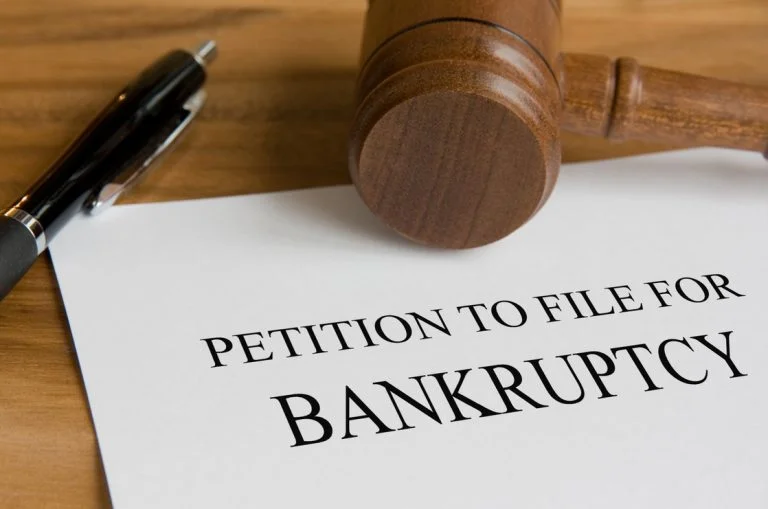Money. It is an emotionally charged topic. When good fortune flows to us, excitement, pride and positive feelings co-exist with fortune. When life’s circumstances swing to lack of wealth, stress and negative emotions can often follow.
Las Vegas residents have been hit with a roller coaster of financial conditions over the last several years. Foreclosures, short sales, unemployment and political changes have resulted in many of us having more debt than our current and foreseeable income can cover. When bankruptcy becomes a potential solution, making decisions based on emotion isn’t the solution.
Through our experience at McDonald Law Group we have found that when our clients have the facts, they feel empowered and positive about making good decisions rather than staying stuck in the negative financial and emotional pit. Let’s take a look at the common emotions associated with bankruptcy and how we can move forward!
Embarrassment
Many debtors who are considering bankruptcy often delay action because they are embarrassed by their situation. They mistakenly believe that a bankruptcy filing is a sign that they are a failure financially and in life in general. That couldn’t be farther from the truth. When a debtor files bankruptcy it is a sign that they are an intelligent individual who knows when to “say when.” We are only human, and an important part of being human is knowing when you need to cut your losses and get a fresh start. Even billionaire presidential candidates like Donald Trump and automaker giants like GM understand that. Does Trump look embarrassed? Hardly.
Is the process embarrassing? No. You will be required to attend at least one hearing at Federal Bankruptcy Court which is located in Las Vegas. A bankruptcy trustee will be assigned to your case. Their job is to step into your shoes and determine which assets are protected or excluded from bankruptcy or if you have any assets that can or should be sold to repay your creditors. The intent of this hearing is not to harass or embarrass you, but to evaluate your case for debt dismissal. Then a few months later, typically, most individuals are discharged or released from their debt.
Fear
Many debtors are afraid and it is the fear of the unknown. Every debtor who files bankruptcy feels a little fear because it is an unknown territory. But becoming educated about the bankruptcy process will help relieve those fears so that you can get through the bankruptcy process and on your way to a fresh financial start.
Questions like, “Can I keep my car? My business? How long will this affect my credit?” are common and the answers to your specific questions most often bring pleasant relief when answered. Let’s cover some of the basics!
Debt typically falls into two categories; secured and unsecured. Secured debt is debt that is attached to an object such as a home or vehicle. Unsecured debt is typically not attached to any tangible objects such as credit card debt. When filing bankruptcy most unsecured debt can be eliminated.
Secured debt can typically only be eliminated if you surrender the property it is attached to. But if you choose to keep the secured property, such as your home and car, in most cases you can keep it but must continue to repay the creditor. Nevada typically allows us to exempt vehicles with up to $15,000 in equity and homes with up to $550,000 in equity. This covers most of us in Las Vegas and Henderson. There are many options for small business owners which will allow them to keep their businesses open and operating. The bankruptcy process was designed to help you start over. Starting the conversation about your specific situation, is the first step.
Anger
Anger often disguises itself as stubbornness and pride. When facing the prospect of not being able to pay bills, many refuse to file bankruptcy and instead dig in their heels. Calls from creditors attempting collections can aggravate and intensify these feelings especially when we do everything we can to pay our bills, such as taking out more loans, liquidating our retirement accounts and selling assets well below value, in an attempt to avoid bankruptcy. This type of reaction doesn’t improve the situation. It can worsen it because you are destroying assets that could be saved with an honest, fresh-start bankruptcy. (Liquidating your assets to pay bills may be a huge financial mistake, especially if you are liquidating a retirement account. Your retirement is your financial safety net in the future and creditors can’t touch it.)
From the day you file a bankruptcy action the harassment of creditors will stop. When you file for a bankruptcy an automatic stay is placed upon the creditors. That means the bank cannot foreclose on your home, make harassing phone calls to you, send you threatening letters, or continue collection efforts against you. The bankruptcy stay order is one of the strictest orders in the United States Court System. Relief from the emotional toll creditor contact evokes can cease immediately.
Isolation
Debtors often feel alone in their situation. The grass often looks greener and you wonder ‘why me? Will my friends, colleagues and family look at me differently? Typically, no one has to know that you are filing. It is no one’s business but your own. But remember that everyone has been touched by these difficult financial times. You may be surprised that your friends and family are facing the same issues, and may be really supportive of your decision to start over. From a legal standpoint, there are specific provisions of the bankruptcy regulations which make it illegal for employers or persons to discriminate against you after filing a bankruptcy.
You are not alone. Statistically, many have exercised their right to choose bankruptcy, from the standpoint that you can have a great attorney, at your side in this process. This situation and experience is one that is shared. It may be the solution you need to have a fair chance of financial and emotional prosperity!
We have concluded that these issues are emotional, but it is important to deal with them from a rational logical position rather than letting fear and negativity continue to rule your life. It is our hope that this information has been a good start to the path of making a good decision for you, your family and business.
Filing a bankruptcy action is an important decision with financial and legal ramifications. It is important to consult with an attorney before you file to determine whether or not filing a bankruptcy is right for you.







